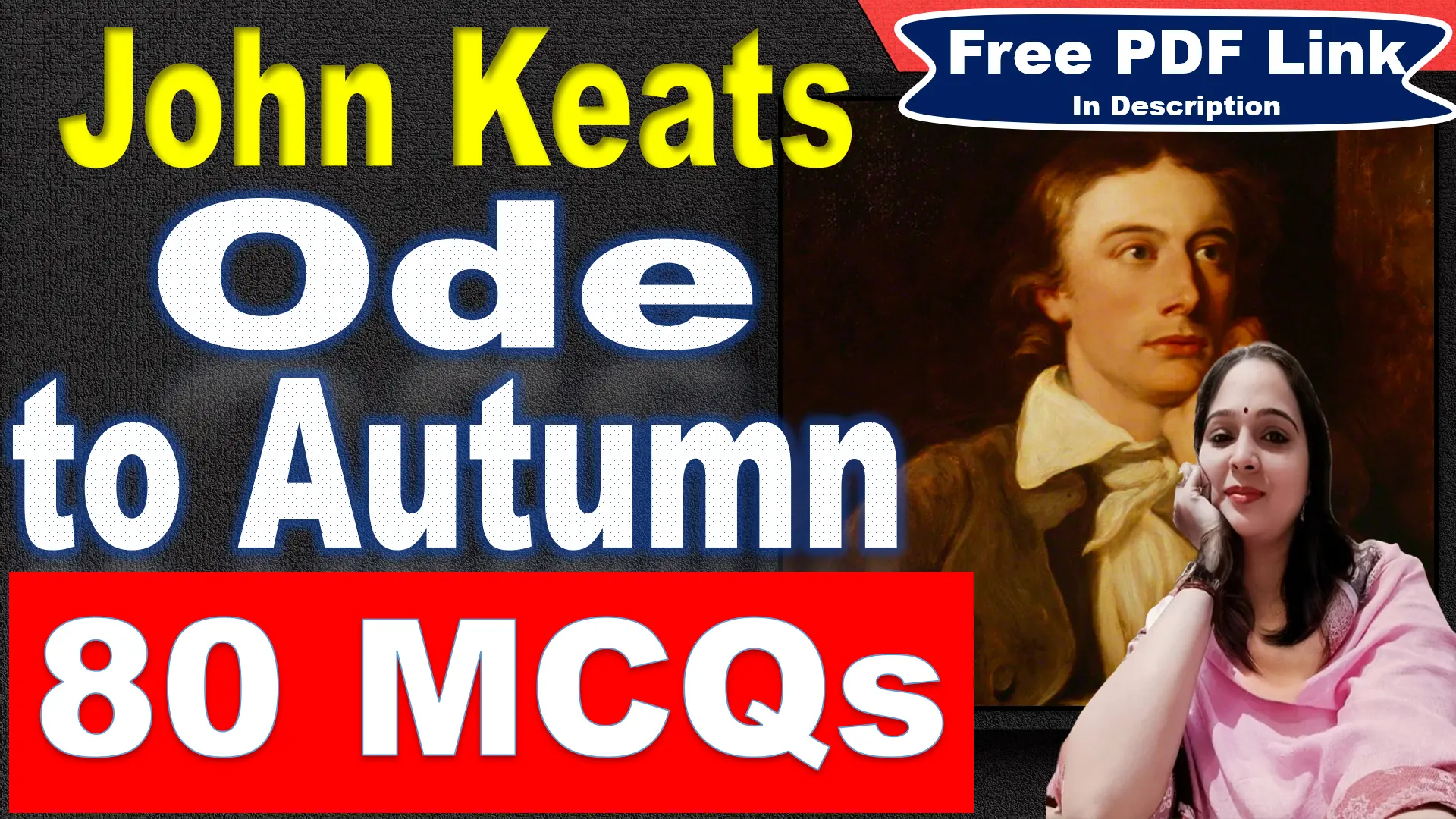Word Meaning
| Line | Word | Meaning | अर्थ |
| Stanza 1 | |||
| 1 | Catch | To seize or grasp | पकड़ना |
| 1 | Falling star | A meteor | गिरता हुआ तारा |
| 2 | Get with child | To become pregnant | गर्भवती होना |
| 2 | Mandrake root | The root of a plant that was once believed to have magical powers | मांड्रेक की जड़ |
| 3 | Past years | Years that have already passed | बीते साल |
| 4 | Cleft | To split or divide | काटना |
| 5 | mermaids | a woman who has the tail of a fish instead of legs and who lives in the sea | जलपरी |
| 6 | Keep off | To avoid or prevent something | बचाना |
| 6 | Envy’s stinging | The pain of envy | ईर्ष्या के डंक |
| 7 | Wind | A current of air | हवा |
| 7 | Serves to advance | Helps to improve or progress | सुधारने या प्रगति करने में मदद करता है |
| 7 | Honest mind | A mind that is free from deceit and trickery | ईमानदार दिमाग |
| Stanza 2 | |||
| 1 | thou | archaic or dialect form of you | तुम |
| 1 | be’st | best | श्रेष्ठ |
| 2 | invisible | hidden | अदृश्य |
| 3 | Ride | To travel on horseback or in a vehicle | घोड़े पर या वाहन में सवार होना |
| 4 | Age snow white hairs on thee | To become old and grey | उम्र के हिसाब से आपके बालों को सफेद कर देती है |
| 4 | thee | archaic or dialect form of you | तुमको |
| 5 | Thou | An archaic form of the second-person singular pronoun | तुम |
| 5 | When thou return’st | When you return | जब तुम वापस आओगे |
| 5 | Wilt tell | Will tell | बताओगे |
| 6 | Strange | Unusual or unfamiliar | अजीब |
| 6 | Wonders | Things that cause amazement or surprise | चमत्कार |
| 6 | Befell | Happened to | हुआ |
| 7 | Swear | To make a solemn promise | कसम खाओ |
| 7 | No where | Nowhere | कहीं नहीं |
| 7 | Fair | Beautiful and attractive | सुंदर |
| Stanza 3 | |||
| 1 | If thou find’st | If you find | यदि तुम पाते हो |
| 1 | Let me know | Inform me | मुझे बताओ |
| 2 | Pilgrimage | A journey to a holy place for religious purposes | तीर्थयात्रा |
| 2 | Sweet | Pleasant or agreeable | मधुर |
| 3 | Yet do not | However, do not | फिर भी नहीं |
| 4 | Though | Even | हालांकि |
| 5 | true | sincere | सच्ची |
| 6 | And last | And finally | और आखिर |
| 7 | Yet | Nevertheless | फिर भी |
| 7 | Ere I come | Before I arrive | इससे पहले कि मैं आऊँ |
Go and catch a falling star Summary
“Go and catch a falling star” is a poem by John Donne, a metaphysical poet of the 17th century. It was first published in 1633, two years after Donne’s death, in a collection titled “Songs and Sonnets.” The poem is known for its wit, clever use of imagery, and exploration of themes such as love, skepticism, and the elusive nature of truth.
In John Donne’s poem “Go and Catch a Falling Star,” the speaker poses a series of challenges to the listener, asking them to perform impossible tasks in order to prove that someone can be truly faithful. The speaker’s tone is one of skepticism and pessimism, suggesting that they believe that true love and fidelity are unattainable.
The poem’s first stanza challenges the listener to catch a falling star, get with child a mandrake root, find out where all past years are, and discover who cleft the devil’s foot. These tasks are all clearly impossible, and the speaker’s use of hyperbole suggests that they believe that finding a true and faithful lover is equally impossible.
The second stanza continues this theme, with the speaker asking the listener to ride for ten thousand days and nights until age snows white hairs on them. The speaker suggests that even if the listener were to embark on such a long and arduous journey, they would still not be able to find a true and faithful lover.
The final stanza brings the poem to a close with the speaker’s declaration that even if they were to find a true and faithful lover, they would not want to go anywhere near them. The speaker’s reason for this is that they believe that the lover would become false before they even had a chance to meet them.
Overall, “Go and Catch a Falling Star” is a poem that explores the themes of love, fidelity, and trust. The speaker’s cynical and pessimistic tone suggests that they believe that true love is unattainable, and that even if it were to exist, it would not last. The poem’s use of hyperbole and imagery reinforces this message, creating a sense of hopelessness and despair.
Key Points
Author The poem is written by John Donne, an English metaphysical poet, and Christian cleric.
Form The poem “Go and catch a falling star” by John Donne is a lyric poem. It consists of three stanzas, each containing nine lines. The rhyme scheme of the poem is ABABCCDDD. This pattern is followed in each of the three stanzas of the poem. The form and structure of the poem contribute to its rhythmic quality and musicality. The use of rhyme and rhythm enhances the poem’s lyrical quality, making it more engaging and memorable for the reader.
Speaker The speaker in the poem is the poet himself, John Donne.
Setting The setting of the poem is not explicitly mentioned, but it revolves around the speaker’s musings on the nature of women’s fidelity.
Theme The main themes of the poem are love, infidelity, and the impossibility of finding a faithful woman.
Plot The poem begins with the speaker issuing a series of impossible commands, such as catching a falling star or finding a true and fair woman. He then muses on the nature of women’s fidelity, suggesting that it is as elusive and fleeting as a falling star.
Tone The tone of the poem is cynical and bitter, reflecting the speaker’s disillusionment with love.
Style Donne’s style is characterized by abrupt openings, various paradoxes, ironies, and dislocations. These features, along with his frequent dramatic or everyday speech rhythms, his tense syntax, and his tough eloquence, were both a reaction against the smoothness of conventional Elizabethan poetry and an adaptation into English of European baroque and mannerist techniques.
Message The message of the poem is that finding a faithful woman is as impossible as catching a falling star. The speaker suggests that women’s fidelity is elusive and fleeting, much like a falling star.
John Donne
Birth and Early Life: John Donne was born in 1572 in London, England. He was the third of six children..
Education: Donne was educated at home by private tutors until he went to Hart Hall, Oxford, at age 11. He left Oxford after three years.
Marriage: In 1601, Donne secretly married Anne More, with whom he had twelve children.
Works: Donne is known for his metaphysical poetry. His works are notable for their realistic and sensual style and include sonnets, love poetry, religious poems, Latin translations, epigrams, elegies, songs, and sermons.
Career: Donne began his career as a lawyer. He later became a cleric in the Church of England.
Death: Donne died on 31 March 1631.
Legacy: Despite his great education and poetic talents, Donne lived in poverty for several years, relying heavily on wealthy friends. He spent much of the late 16th and early 17th centuries writing letters of recommendation for patrons in hopes of securing employment, and his literary reputation remained in obscurity until 20th-century scholars rediscovered him.





